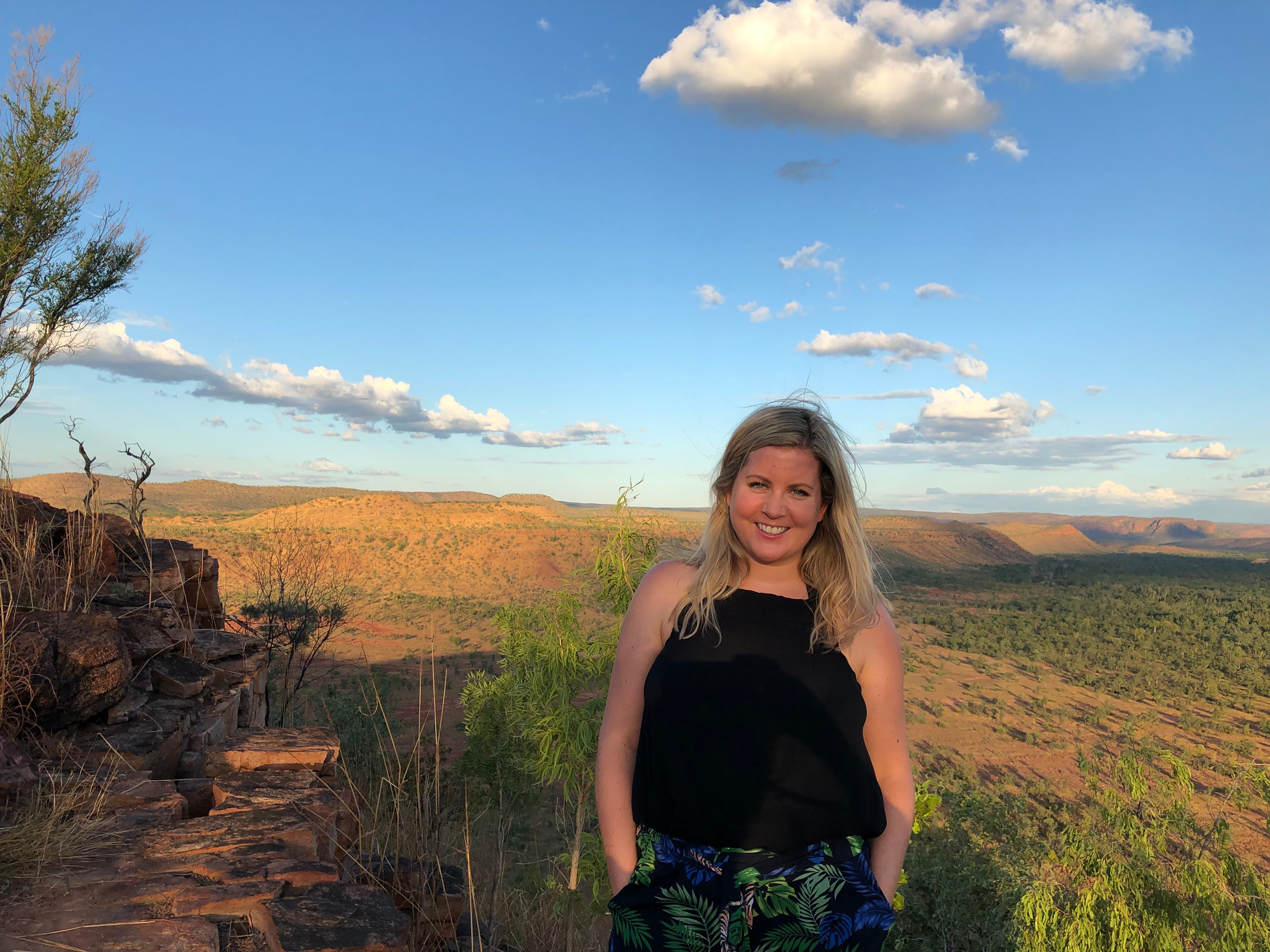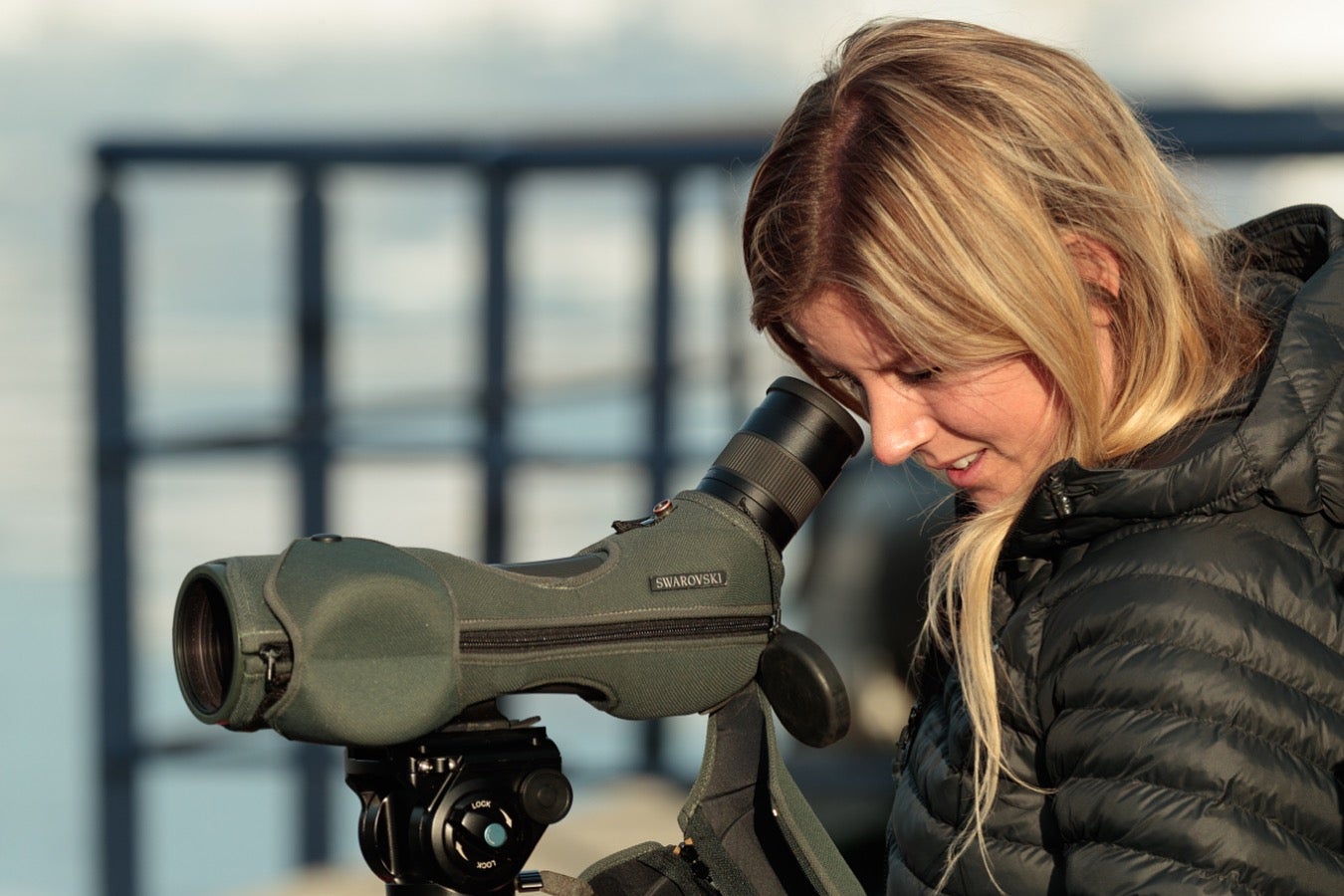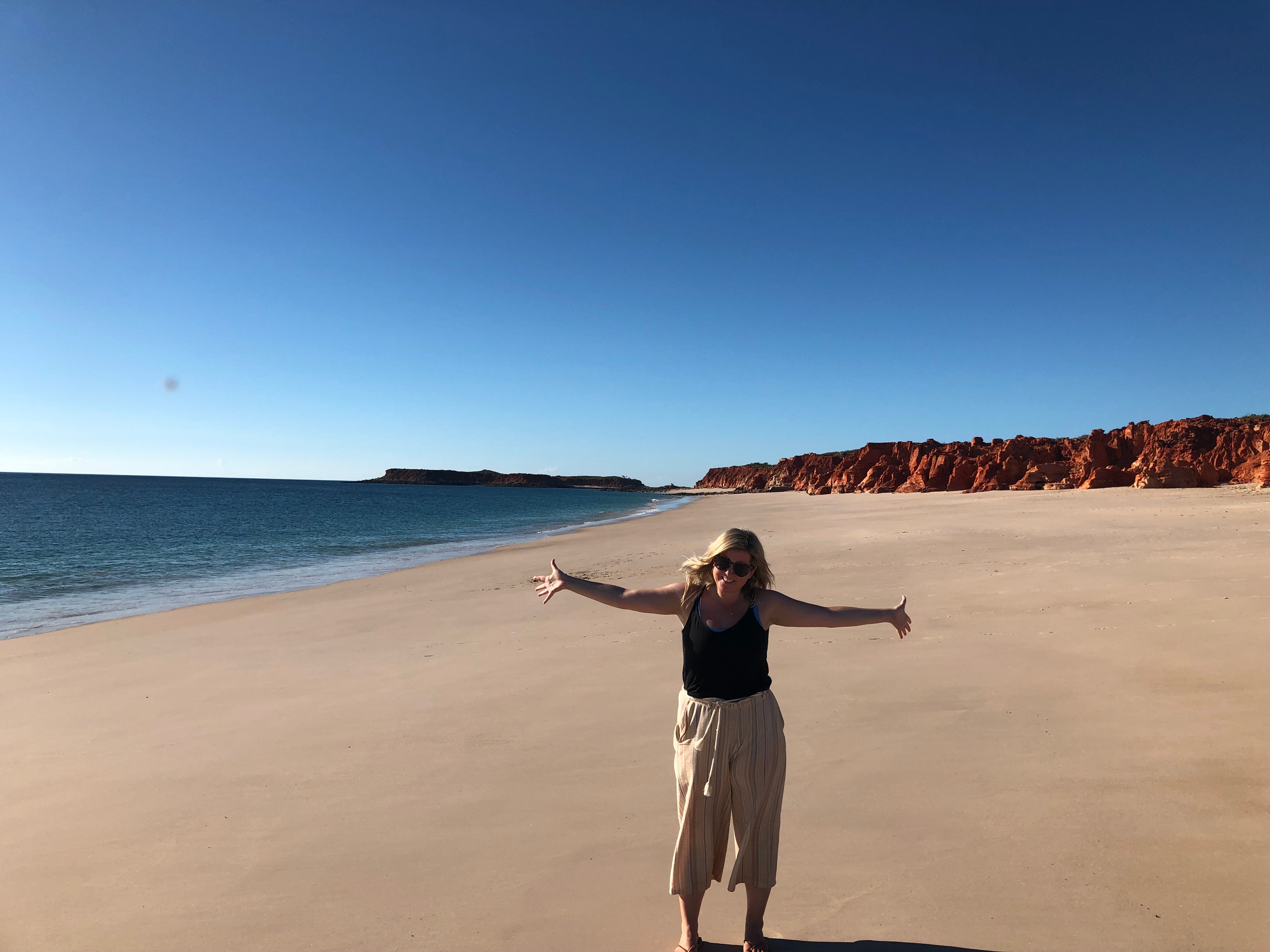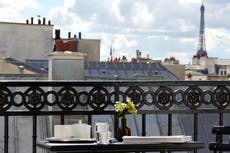The Independent's journalism is supported by our readers. When you purchase through links on our site, we may earn commission.
The world is my muse: As a novelist, this is why travel is the greatest ever ideas generator
From remote, crocodile-infested swamps to the icy wilds of the High Arctic, author Lizzie Pook finds inspiration for her books in some of the world’s farthest-flung places

Always carry a notebook with you when you travel – that’s what they say. But I’d like to reassure any budding writers out there that the back of a boarding pass also works quite nicely. As does a black eyeliner pencil and a torn-off piece of cereal packet, or a borrowed biro and the sweaty inside of your arm.
I’ve captured snippets of ideas for novels on all these things in various parts of the world, whether while trekking through the chimp-filled rainforests of Rwanda or during a tiny expedition ship moored deep in an ice-cloaked Greenlandic fjord, days away from radio or satellite signal, with only my own, sprawling thoughts for company.
For centuries, authors have been inspired to write by what they have seen while travelling the world. Take Aldous Huxley for example. He conceived of his masterpiece Brave New World during a sojourn on the French Riviera. While his surroundings were undoubtedly idyllic – “Here, all is exquisitely lovely. Sun, roses, fruit, warmth. We bathe and bask”, he wrote – they also gave him the creative space to envisage his novel’s conversely dystopian world. Ernest Hemingway’s first novel The Sun Also Rises was influenced by the bloody gore of fights and the running of the bulls at the Festival of San Fermin in Pamplona. Even Oscar Wilde famously never travelled without his diary to jot down his ideas. “One should always have something sensational to read on the train,” he famously, fabulously said.

It goes without saying that travel opens us up to new information and new experiences. But I like to see travel as a big gulp of fresh air for the brain, and there are creative benefits to that mental space. Travel heightens the senses, of course. Just consider the elemental experience of walking a remote wind-scoured beach in winter, or the heady blast of sensations that comes with exploring a local food market in the sticky summer heat. Travel opens our eyes, ears and noses, and when those gates are left open other ideas float in, too.
As a travel writer, I’ve had the great fortune of experiencing plenty of opportunities to open my mind to new ideas. So it’s no surprise that, whenever I travel, the notes app on my phone expands with disjointed snippets of ideas for novels. Anything can serve as inspiration: a tiny plaque on the exterior of a tumbledown Cornish cottage; a snatched conversation with a local about Ladakhi folklore; the distant sight of a woman at the edge of a surf-pounded promontory. What is she thinking about, my brain will ask. What series of events have brought her here?
I was staggered by what I saw in the frozen north – cathedral-sized icebergs veined with the most vivid bright blue; mother polar bears and their cubs feeding on seal meat atop quartz-like slices of sheet ice
It was travel that gave me the inspiration for what became my debut novel. The first spark for Moonlight and the Pearler’s Daughter – a historical mystery about a young woman searching for her missing father in a lawless pearl-diving town – came during an ambitious Australian road trip with my twin sister. Our dad had recently passed away and we were in desperate need of distraction. So we flew to the other side of the world, hired the only car we could afford and pledged to take it from the southern tip of Australia to the north (and back). It was 5,300 miles, an endless patchwork of rust-red roads that left us with a windscreen carpeted with squashed bugs. We saw things we never dreamed we’d see – from a UFO research station in the middle of the desert to an attempted murder. (Let’s just say it was not an uneventful trip.)
Later, we ended up in Fremantle in Western Australia, where I stumbled upon a tiny exhibition in the Maritime Museum. Tucked away in a corner, behind rusting anchors and old ships’ wheels, was the story of a family of British settlers who sailed across to Shark Bay in the 19th century to set up in the brutal and perilous pearl fishing industry. It was like being struck by lightning. I reached for my phone and took countless pictures and notes. I knew I had the beginnings of an idea. What followed was a years-long research process split across two continents, taking me from remote pearl farms on the Dampier Peninsula to crocodile-infested rivers of Australia’s Northern Territories. I interviewed wildlife experts, explored mangroves with Indigenous guides and trawled the archives of museums and historical societies. When the book was eventually complete, I was astonished to see it sell to publishers at auction around the world. That never would have happened had I not taken that trip, and had my brain not been “open” to receiving the idea.

It was a journey to the uninhabited east coast of Greenland that convinced me that the Arctic had to play a big part in my second novel. I was staggered by what I saw in the frozen north – cathedral-sized icebergs veined with the most vivid bright blue; mother polar bears and their cubs feeding on seal meat atop quartz-like slices of sheet ice. Years later, when the world locked down and we were all forced to spend months indoors, I turned my attention back to that trip. Like many others, the only way I could escape was through reading. In the pages of a book, or an explorer’s diary, I could journey up into the High Arctic again, I could board whaling ships and stagger onto vast plains of ice. I read obsessively about 19th-century Arctic expeditions, becoming fixated with stories about British explorer Sir John Franklin and crews from all over the world jostling to find a route through the impenetrable northwest passage. The result is my forthcoming historical adventure novel, Maude Horton’s Glorious Revenge, about a young woman who disguises herself as a boy to board an Arctic exploration ship, and the dauntless sister who’ll stop at nothing to uncover the truth of her eventual death.
I have many author friends – those who write professionally or as a hobby – who have had their writing transformed by travel. From one who stumbled across the idea for her (now incredibly successful) novel while pottering around a gallery in Vienna to another who wrote Young Adult fantasy novels until she decided to climb one of the world’s highest mountains after suffering heartbreak. She soon realised the book she should be writing was a nerve-jangling thriller set in the mountain trails of Nepal. It’s now a bestseller.

Without travel, I would likely still be writing but I never would have stumbled across these ideas that have, very truly, changed my life. I never would have had the chance to tell these stories. So, I’d encourage you to travel, if you can. Whether that’s taking a stroll to your nearest free museum or embarking on an epic journey to your bucket list destination. Give your brain that big, deep breath, and you never know what ideas might float in...
‘Moonlight and the Pearler’s Daughter’ is out now. ’Maude Horton’s Glorious Revenge’ will be published on 1 February 2024 and is available to pre-order



Join our commenting forum
Join thought-provoking conversations, follow other Independent readers and see their replies
Comments